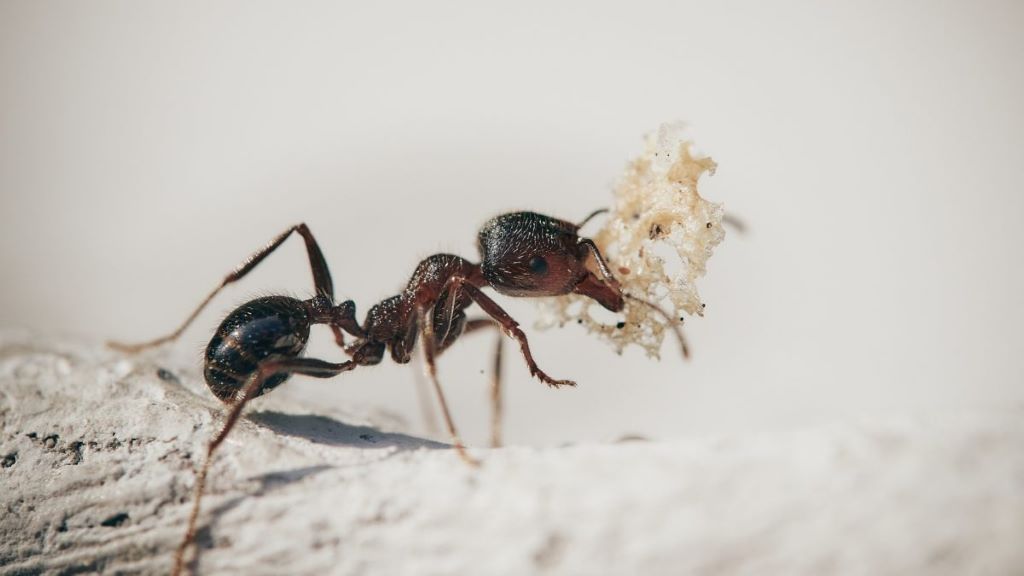Why Ants Keep Coming Back and How Exterminators Provide Lasting Solutions

Key Takeaways:
- Ants are resilient and can repeatedly invade homes if not dealt with thoroughly.
- Exterminators use a comprehensive approach to eliminate ants and prevent future infestations.
- Identifying entry points and understanding ant behavior are crucial in effective ant management.
- Regular maintenance and professional solutions can keep ants at bay long-term.
Introduction
Ants rank among the most persistent and irritating household pests. Despite being minuscule, their organizational skills and communal nature allow them to invade homes efficiently and in large numbers. You might notice that no sooner have you chased away one ant colony than another seems to take its place. This cycle of infestation can be frustrating and perplexing for homeowners. In this article, we aim to uncover the reasons behind ants’ persistent return and the methods professional exterminators use to combat these industrious invaders effectively—while also highlighting the importance of termite inspection services in providing a more lasting solution to an age-old problem.
Why Ants Keep Coming Back
Ants have mastered the art of survival and adaptation, traits that make them relentless invaders. Their colonies can house hundreds of thousands of ants, each performing a specific role that ensures the colony’s success and growth. The worker ants, in particular, are tasked with foraging for food and water. Once they discover a potential source, they return to their nest, leaving behind a pheromone trail. This invisible pathway is a form of communication, guiding other ants to the source and thereby allowing the colony to capitalize on the find efficiently.
One significant reason ants keep coming back is their ability to solve complex problems collectively, adapting and overcoming obstacles that deter individual insects. Most homeowners attempt to manage ant infestations by killing visible ants with sprays or traps. However, these measures only target a minority of the population. The queen, the colony’s heart, remains hidden, usually deep within a nest that’s hard to reach with consumer-grade solutions. Worker ants are quickly replaced without eliminating the queen, and the infestation persists.
Besides their reproductive resilience, ants also demonstrate remarkable versatility in finding entry points into homes. They exploit the tiniest cracks in walls, foundations, and doors, making it challenging to keep them out. They are attracted to any trace of food, from crumbs on the kitchen floor to sticky residues in cupboards. Therefore, sporadic cleaning or minor interventions without a holistic understanding of ant behavior can inadvertently contribute to the problem, making the case for systematic pest control even stronger.
How Exterminators Provide Lasting Solutions
Professional exterminators leverage extensive expertise and advanced tools to address ant infestations with precision and efficacy. The process typically begins with a detailed pest inspection. Identifying the specific ant species involved is crucial, as effective management strategies often vary between different types. While some ants nest indoors, others may travel long distances from outdoor nests, and each scenario requires a tailored approach.
Exterminators utilize sophisticated techniques that go beyond traditional sprays and traps. For example, baiting systems play a fundamental role in addressing visible ants and unseen colony members. These baits contain attractants mixed with a slow-acting insecticide. The design ensures that foraging ants transport the toxic bait back to the nest, allowing it to be fed to the queen and other colony members. This method targets the entire colony, rendering it far more effective than methods that address surface-level appearances.
In addition to direct ant removal, exterminators emphasize the importance of creating an environment that naturally deters ants. This involves comprehensive pest-proofing measures such as sealing entry points, closing gaps around windows, doors, pipes, and anywhere else ants might enter. Understanding ant behavior enables exterminators to offer preventative advice that discourages re-infestation. For instance, they might recommend homeowners keep food in airtight containers, promptly clean up spills, and maintain dry environments, as ants are often drawn to moist conditions.
Extermination services usually offer follow-up visits as part of their treatment plans to ensure the issue is fully resolved and swiftly address any recurrence. By integrating effective treatments, prevention strategies, and education, exterminators provide a well-rounded solution that safeguards homes against the relentless return of ants.
Conclusion
The persistent problem of ants returning time and again can be daunting for any homeowner. However, understanding the underlying reasons for these invasions and how ants operate within their colonies sheds light on the necessity for comprehensive solutions. While ants are unyielding in their quest for nourishment and shelter, you are not powerless against them.
By employing professional exterminators with the expertise and tools to combat these pests effectively, the opportunity for lasting relief is greatly enhanced. Exterminators don’t eradicate current infestations; they lay the groundwork for a future where ants are less likely to return. The cycle of ant invasions can be disrupted and completely broken through strategic extermination techniques, diligent identification of access points, and proactive prevention measures. Incorporating expert guidance and pest management into your household routine guarantees a peaceful, ant-free home that allows you to focus on life’s other joys.
